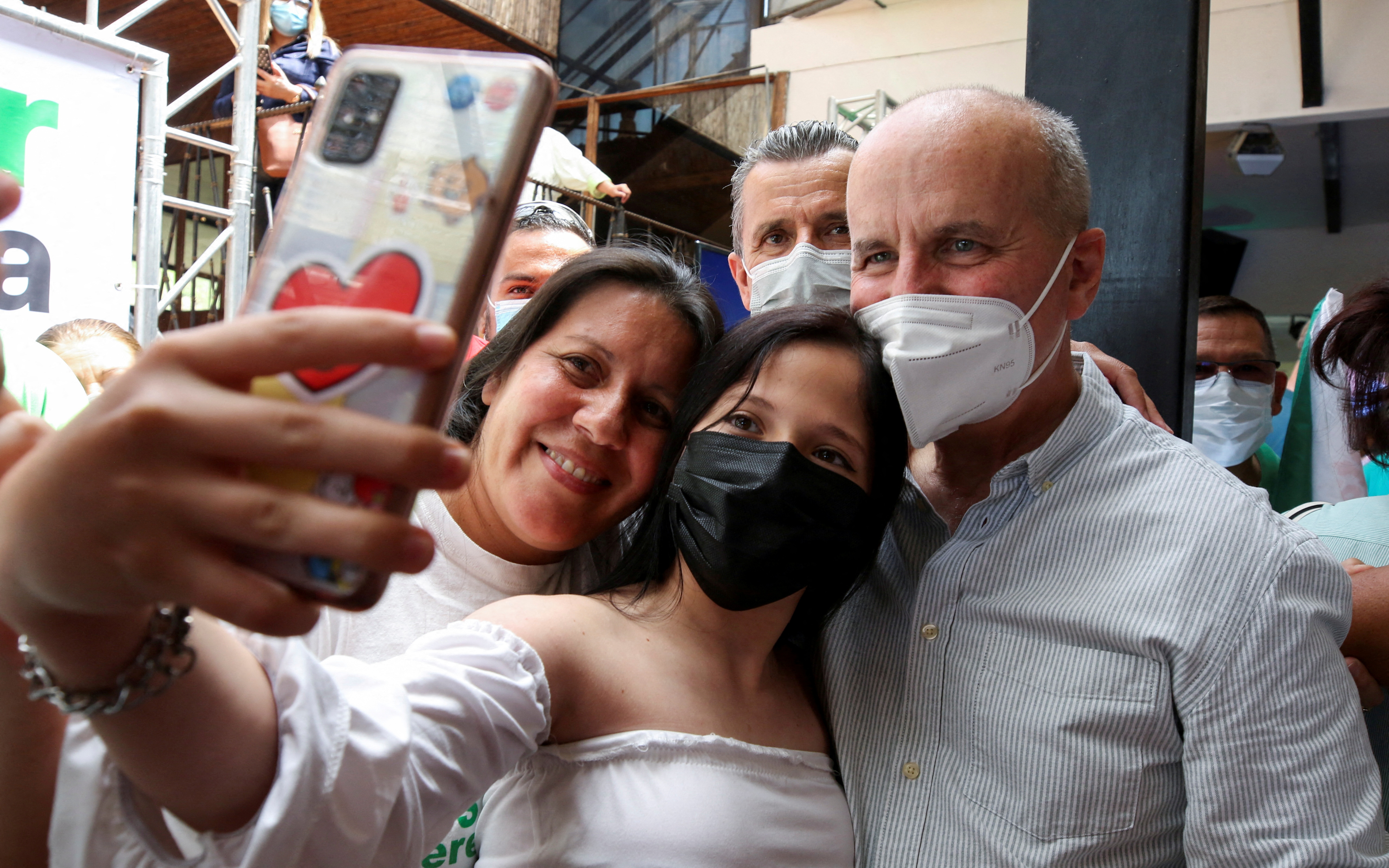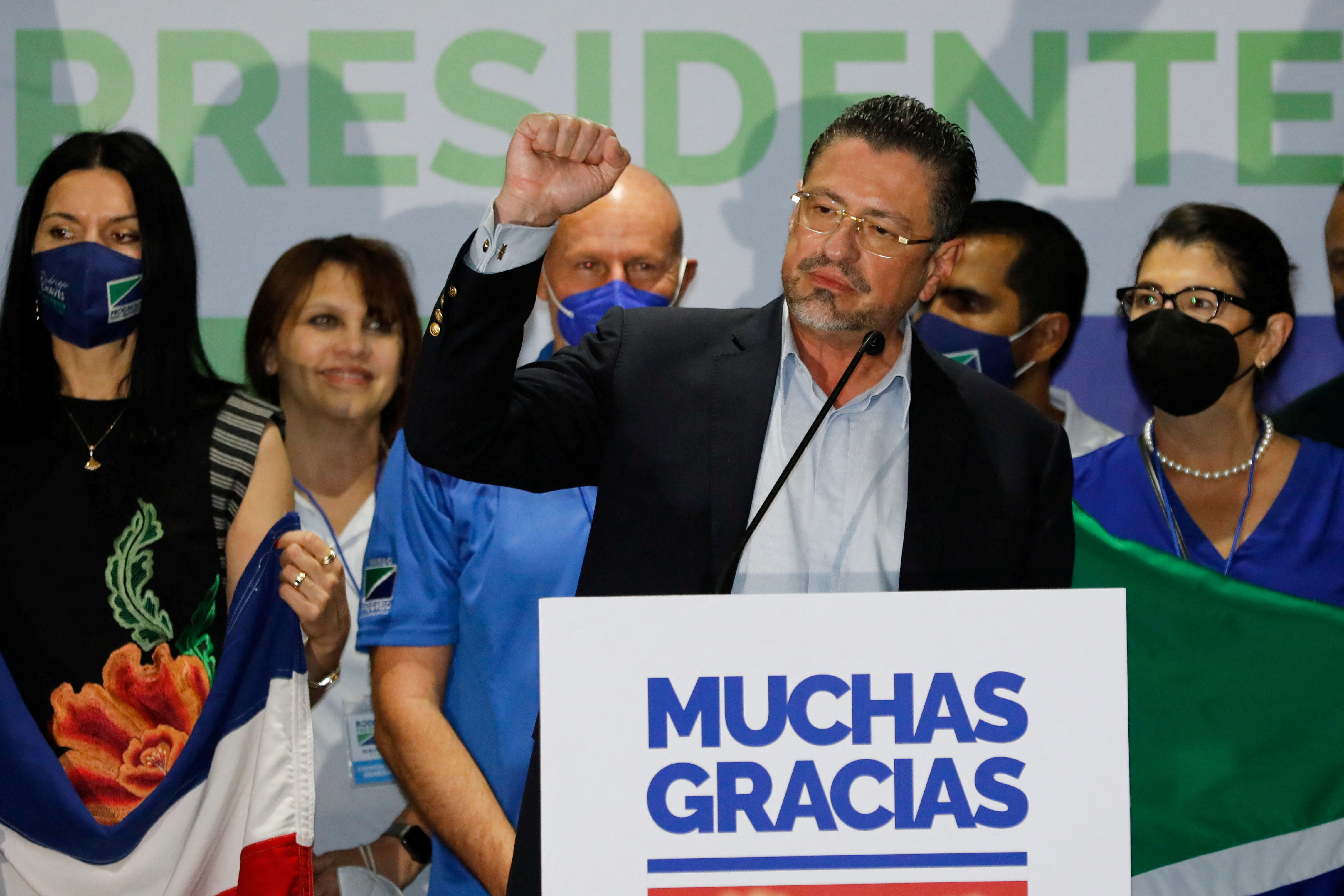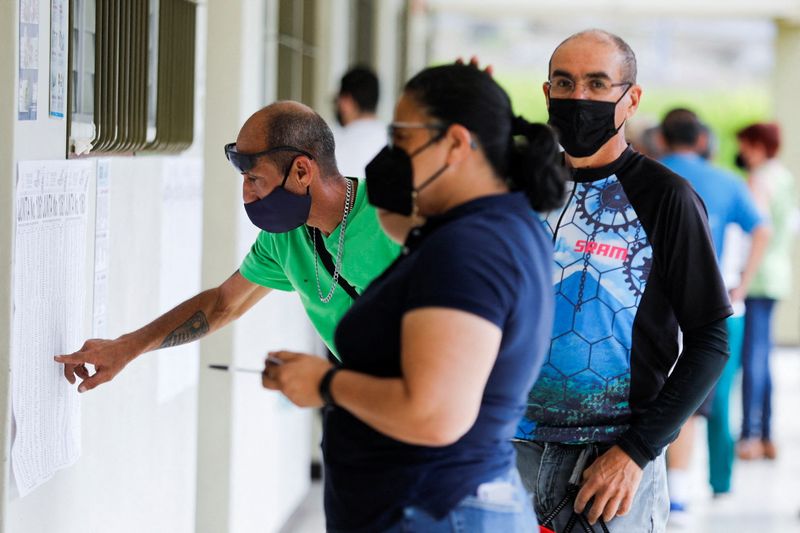
Some 3.5 million Costa Ricans are called to the polls this Sunday to elect the country's president for the next four years, among center-right candidates José María Figueres, of the National Liberation Party (PLN) and Rodrigo Chaves, of the Social Democratic Progress Party (PPSD).
Figueres and Chaves reach this second round technically tied according to the most reliable polls published until this Thursday. The latest poll by the Center for Research and Political Studies (CIEP) of the University of Costa Rica (UCR) places Chaves in the lead with 41.4% among those decided to vote and Figueres awarded 38%, which according to specialists is recorded as a tie given the margin of error of the poll.
If the latest polls made anything clear, it is that the gap between Chaves and Figueres was closing as election day approached, because a week earlier the same pollster from the University of Costa Rica awarded 43.3% to the PPSD candidate and 38.1% to the PLN candidate.
“There are no significant differences between the candidates, either of them could be leading right now, we don't know how much, but the forces are very even at the moment,” said Ronald Alfaro University Weekly, coordinator of the CIEP survey.
The same poll recorded 18.1% of people who still did not decide who to vote for, and on whom it depends where the balance will lean.
Rodrigo Chaves was the surprise candidate in this election. On the eve of the first round votes, on February 6, Chaves was in fifth place among the 25 candidates who competed, but won the second round by placing surprisingly second place, although with more than 10 points behind Figueres.
The official results of the first round were thus placed in the top five places: José María Figueres, from National Liberation, 27.3%; Rodrigo Chaves, from Democratic Social Progress, 16.8%; Fabricio Alvarado, from New Republic, 14.9%; Eliécer Feinzaig, from Liberal Progressive, 12.4%; and Lineth Saborío, from Christian Social Unity, 12.4%.

Jose Maria Figueres Olsen
Figueres Olsen, 67, a candidate for the traditional National Liberation Party (PLN), comes from a family of politicians, and was president of Costa Rica between 1994 and 1998.
He is the son of José María Figueres Ferrer, “Don Pepe”, who was president of the country for three terms and went down in history as the president who abolished the army in Costa Rica in December 1948. “Don Pepe” came to power after taking up arms in what was called “The Revolution of 48″.
Figueres Olsen graduated in industrial engineering from the West Point military academy in the United States, was Minister of Foreign Trade and then Agriculture and Livestock during the first administration (1986-1990) of Nobel Peace Prize winner Oscar Arias. In 1994 he became President.
José María Figueres has been told to participate in a corruption scandal known as the ICE-Alcatel case between 2000 and 2003, in which the French company Alcatel had bribed Costa Rican politicians and officials from various governments. Figueres would have received $900,000 from that French company. He has denied that it was bribery and alleges that with the company he developed “consultancy work”.
Although he was never charged with a crime, coinciding with the scandal, Figueres moved to live in Switzerland and returned to Costa Rica eight years later, after the prosecution filed the file.

Rodrigo Alberto de Jesus Chaves Robles
Chaves Robles, 60, a candidate of the emerging Social Democratic Progress Party (PPSD), holds a PhD in Economics from Ohio University in the United States and received a scholarship from Harvard University to study poverty issues in Asia. He was Costa Rica's finance minister during the current government of Carlos Alvarado for a period of six months after which Alvarado asked him to resign in May 2020 due to “irreconcilable differences.”
He worked for the World Bank for nearly 30 years, and became director of the World Bank office in Indonesia.
Two World Bank workers denounced Chaves for “sexual innuendo” and a “pattern of unwanted inappropriate behavior” that the candidate has claimed are “gossip and lies.” He also denied that this was the reason for his resignation from the world body.
As published by The Wall Street Journal in October 2021, an investigation by a World Bank administrative court records testimonies describing Chaves as a “known stalker” and that there is “a documented pattern of harassment that lasted at least four years and involved six women.”
Although this issue became the main attacking flank of rivals and civil organizations, it does not seem to have made a dent in most Costa Ricans who took it from fifth to second place in the first round of elections, and kept it at the top of the sympathies in the last polls.
Chavez's campaign slogan is #MeComoLaBronca, a phrase that Costa Ricans use as “I face problems.”
Both candidates have focused their work proposals on the economy, state management and the environment, and the debate has focused on the issues of corruption, management of electoral funding and complaints of sexual harassment.
“It all starts with accelerating our economy to generate jobs, attract investment, consolidate new businesses and strengthen our exports. You have our promise: we will end, once and for all, the paperwork, the excessive obstacles and interventions of the State and the abusive costs. We will let them work, without getting in the way!” , promises Chaves in his government plan.
The Figueres programme, for its part, proposes among its main goals for 2030 “to reduce carbon emissions by half, to eliminate extreme poverty, to reduce unemployment to less than 7%, to be a bilingual country, to recover fiscal health (deficit less than 3% and debt less than 50% of GDP), to grow at a rate greater than 5% sustained, and to be the number one in competitiveness in Latin America”.

Nicaragua and Daniel Ortega
Although the two candidates are centre-right, in this last stage they have avoided being frontal in their positioning around the dictatorships of Cuba, Venezuela and Nicaragua and have limited themselves to reaffirming Costa Rica's democratic values.
Before, at least Figueres was clearer. In an interview with Chilean media outlet Emol, in January 2019, he said: “It seems to me that the Maduro regime has far exceeded all the limits that should be allowed to it and that rather it has become a regime that seems to have as its main enemy not the international community, but the Venezuelan people themselves. I don't understand how in the times we live in there can be a regime that causes so much pain, so much suffering, so much despair and so much misery among the Venezuelan family.”
From Nicaragua, he said in the same interview: “It hurts me a lot what happens in Nicaragua. I remember the revolution of '79, when the whole world turned to support the Sandinista movement to overthrow 50 years of Somoza's dictatorship. And over the years, seeing that some leaders of what was that revolution that captivated the illusion of the world have become an expression many times worse than the Somoza years, can only fill it with sadness.”
Nicaragua has been absent from the electoral debates despite the fact that 350,000 people live in Costa Rica, including migrants and exiles, from our neighbor to the north.
“The relationship with the Nicaraguan government is certainly a more delicate relationship. There is a difference in values, other conditions and the international positioning of our countries, but these differences do not mean that we are not going to talk and seek to improve the climate of relationship between the two countries. We have that obligation and, therefore, due to the combination of economic and political interests, we are going to make an extraordinary effort to make it possible to smooth things out and get along in the best possible way,” Figueres Olsen explained to CRHoy digital media at the beginning of February of this year, before the first round.
On March 10, candidate Rodrigo Chaves, for his part, expressed during a meeting with representatives of the country's exporting companies, chambers and banking entities: “Our interest will be to defend our democracy, to defend our freedoms. So, I hope to have a very cordial relationship with Don Daniel Ortega.”
The results of this day will be decided by the more than 1.5 million Costa Ricans who have said they have no candidates to vote for. To convince them, Figueres appeals to decide on “the experience” and Chaves for “a different way of doing things”.
KEEP READING:
Últimas Noticias
Debanhi Escobar: they secured the motel where she was found lifeless in a cistern

The oldest person in the world died at the age of 119

Macabre find in CDMX: they left a body bagged and tied in a taxi
The eagles of America will face Manchester City in a duel of legends. Here are the details

Why is it good to bring dogs out to know the world when they are puppies



